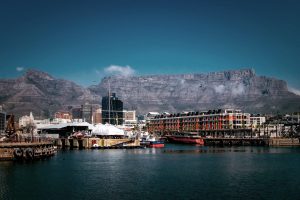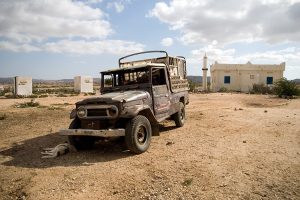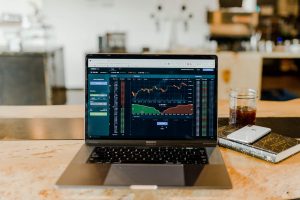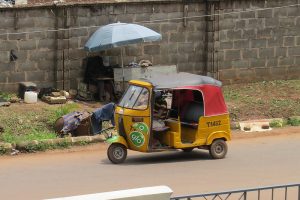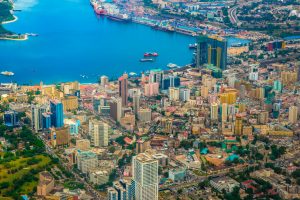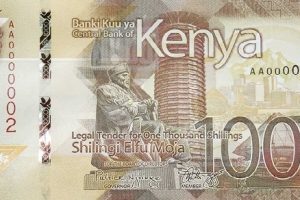The use of LPG (Liquified Petroleum Gas) in cooking in Kenya is increasingly in demand, since many people in urban areas prefer to use gas for cooking. Recently, there has been the establishment of many LPG companies to meet the demand for gas. Since gas is becoming an essential commodity in households, and starting cooking gas business in Kenya to provide gas will earn you good profits. If you wish to start a gas refilling business in Kenya, it is an excellent idea.
Is Gas Business Profitable in Kenya?
Yes, gas business is profitable in Kenya. With growing urbanization in Kenya, the use of gas for cooking and heating is on the rise. This has led to the high demand for LPG gas in the country. The rise in demand means gas business is profitable in Kenya, especially if you follow the practical tips in this article such right location, good customer service and patience.
After registering a company in Kenya, this is how to become LPG gas distributor in Kenya.
Draft a Cooking Business Plan
It is essential to have a cooking gas business plan. It helps you put down your goals and track them over time. Furthermore, it is also important for evaluating business models like the analysis of various operational aspects for the success of any business. Make sure to include business location, startup costs, market segmentation, cashflow projections, risks, strengths and weaknesses of the business.
Acquire the Necessary Licenses and Permits
To operate an LPG business in Kenya, you need the following business licenses and permits.
Energy Regulation Commission License
To get the Energy Regulation Commission license in Kenya, you need to provide your business location and indicate your gas supplier. You must also meet the safety requirements for LPG to avoid disasters like fire. Among the requirements to operate a retail LPG gas business, you must store gas cylinders in the open and you must have a fire extinguisher. The cost of the license is around Ksh 5,000 every month.
Trading License
Just like any other business, you need a trading license to start a retail gas business. You can obtain one from your local authority or county government offices. The price ranges between Ksh 5,000 and Ksh 10,000 annually.
Fire License
Fire licenses are taken as a proof that you meet the requirements to avoid fires and in case of fires, you can control it. As such, you need to have fire extinguishers. You can get the license from county councils at Ksh 3,000.
KRA Certificate
This certificate is for ensuring that your business complies with Kenya Revenue requirements. As such, you need to pay taxes and file returns.
Weights and Measures Certification
This certificate is taken to ensure that your gas meets the required weights and measures. You need to have a proper weighing scale. You can get the license at around Ksh 1,200.
Cooking gas is a flammable substance. Please make sure your gas business is insured for loss of property and life. What you will be paying monthly for your insurance will be a very small amount compared to what it will cost you in case there’s fire or an explosion at your premise. Remember, you can also face lawsuits from your neighbors or customers.
Learn About Cooking Gas Business
You cannot start a cooking gas business without learning the essential elements regarding the business. You can learn from experienced LPG retailers, or you can ask your potential supplier for training. Some of the things you must know before start your gas business are the following.
- How to identify best gas cylinders
- Types of cooking gas
- How to identify quality gas
- How to identify good LPG gas supplier in Kenya
- How to measure gas
- How to refill gas cylinders
- How to safely store gas cylinder
- How to operate a fire extinguisher
- Opportunities and challenges facing cooking gas retailers in Kenya
Assess the LPG Market
Before you can start a cooking gas business, you need to assess the market needs. For example, determine if people near you are using cooking gas in their households. In this case, there will be good gas business opportunities. Also, get to know the weight that is commonly used by a majority of people. In most places, 6 kg gas cylinders are fast-moving.
Find a Good Business Location
A good business location for LPG retail business in Kenya is near residential areas. Also, densely populated areas do well for LPG gas. In towns, most people use cooking gas in their household, unlike in rural areas where a majority of people use firewood and kerosene. Ensure that in the area your business is operating in, there is no unhealthy business competition. Having suppliers near you is a factor to consider, avoiding high costs when transporting gas cylinders.
Advertise Your Cooking Gas Retail Business
It would be best if you advertised your cooking gas retail business for potential customers to know about the existence of your business. The most excellent way to advertise your business is through the use of stickers, posters and also on social media. Design good business posters and stick them at the entrances of residential areas and electricity poles. Ensure to indicate the business name and contact details. When people need a refill, they will call you to deliver.
Equipment for Starting an LPG Retail Business in Kenya
To start cooking gas retail business in Kenya, you need the following equipment.
Gas Cylinders
It would be best if you had different brands of LPG cylinders. And since your business is retail, your work is to exchange empty gas cylinders for refilled cylinders. You can get filled gas cylinders from gas companies. The Energy Regulation Commission controls the prices of gas in Kenya. Usually, a 6 kg gas goes for between Ksh 800 and Ksh 1000. LPG cylinders are available in the following quantities.
Types of Gas Cylinders in Kenya
For your business to succeed, you need to know the best gas cylinders in Kenya by looking at the types of gas cylinders in the country and their uses.
- 3 kg cylinders: These are the smallest cylinders and are commonly used in low-income areas.
- 6 kg cylinders: These are typically used for domestic cooking.
- 13 kg cylinders: These are a more common size for domestic cooking and can also be used for small businesses.
- 35 kg cylinders: These are larger cylinders that are typically used for commercial cooking or for businesses that need a large supply of gas.
- 50 kg cylinders: These are the largest type of gas cylinders and are typically used for industrial applications.
In addition to these standard sizes, there are also a number of specialty gas cylinders available in Kenya. These include cylinders for welding, medical gas, and fire suppression.
Metal Cage
One of the requirements for gas retailers is that they should store gas in open areas. As such, you need a metal cage where you will be keeping your gas cylinders. You can order one from your gas brand provide or get one from local welders.
Fire Extinguisher
You need fire extinguishers as a precautionary measure against any fire outbreaks. Many fire extinguishers providers can supply you. Fire extinguishers cost between Ksh 3,500 and Ksh 7,000.
Digital Weighing Scale
It would be best if you had a weighing scale when selling cooking gas. Customers need to confirm that the gas meets the required measurements before buying. You can get a digital weighing scale from hardware at the cost of around Ksh 15,000.
LPG Gas Suppliers in Kenya
Recently, many companies have been targeting the Kenyan LPG market due to their high demand that is coming with urbanization. The following are the standard LPG suppliers in the market.
- Total Kenya
- Hashi Energy
- KenolKobil (K-Gas)
- National Oil
- Proto Energy
Final Words on How to Start LPG Retail Business in Kenya
To excel in gas business, you need to be different from other gas retailers in the market. For instance, you need to offer after-sales services to customers by delivering LPG cylinders to their homes. Also, make sure that your gas meets the measurement requirements. You need to measure cylinders whenever customers come for a refill, which is essential to win their trust. With time, you will have a large market share after your business has established a name.
